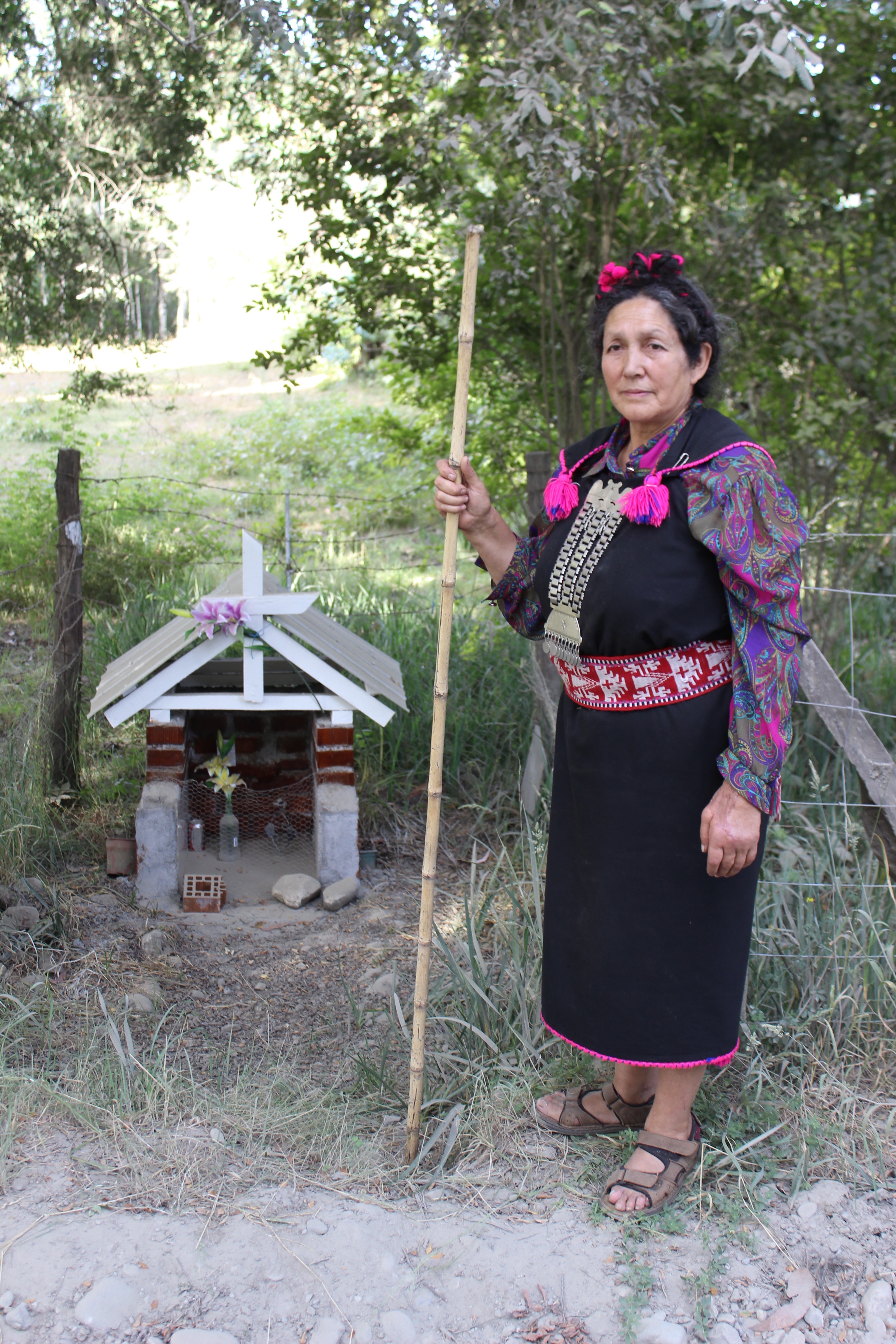
The Mapuche community is one of the few that resisted the Spanish invasion beginning midway through the 16th century. They have grown accustomed to confrontation. For decades, Mapuche groups in La Araucania region have been painted with a single adversarial stroke. Subsequent government efforts to improve relationships with groups like the Mapuche have been halfhearted at best.
Today, the Chilean government has made it clear that its priorities revolve around economic gains through development and the harnessing of nature’s strength to provide power to its urban centres and beyond. The Mapuche community, on the other hand, see their natural surroundings as their life force, one that is diminished with each dam constructed and road paved through their region.
It should be no surprise, then, that when the Chilean government announces a project to pave a road that runs directly through Juana’s property to increase access to a hydroelectric dam in the region, these efforts are met with resistance.
The physical distance between Mapuche communities and the high-rises of Santiago has made it easy to ignore the atrocities the Mapuche and other groups have been exposed to over the years. However, the urgent action needed to mitigate the impacts of global climate change is closing the vast gap of concern and understanding between Mapuche and government values. Climate change, as a pressing issue that requires immediate action, has been brought to the doorsteps of city offices, through pressure from local and international communities in movements and official agreements like those reached in Paris late last year.
The time may be upon government officials to listen to the collective voice of the Mapuche and adopt their approach in becoming more aligned with environmental protection efforts: their survival and the survival of their children rely on it.
While the reasons for the governmental increase in environmental concerns may not be predicated on creating peace between these two groups, there is an unusual opportunity to do so that may initially be peripheral but has the potential to start a new peacebuilding process in the area.
In using nature as a vehicle to build peace between these groups, there seems to be hopeful outcomes that would serve to align the Chilean government more appropriately with international environmental and human rights-based regulations (such as UNDRIP), improve their relationships with the Mapuche community, and show a more robust attempt to sustainably address the needs of our planet’s health.
Innovative leadership from the Chilean government is crucial to the incorporation of local and traditional knowledge into policies that dictate how development happens within the country’s political boundaries. The pressures of climate change have and will continue to confront the Chilean government, and its internal leadership will determine whether or not they seize the opportunity to create something new with the Mapuche community in their efforts to adapt to and mitigate those impacts.
The moment has arrived for the Chilean government to acknowledge alternative ways of thinking regarding peace and the environment. This change is most likely going to come from the urgent concerns and fears for the future that climate change presents to those government officials and the legacies they seek to leave behind. If a peace process is sparked between the Mapuche and the Chilean Government due to common efforts to answer calls for climate change action, it would be “matar dos pájaros de un tiro,” as Chileans say or killing two birds with one stone.


